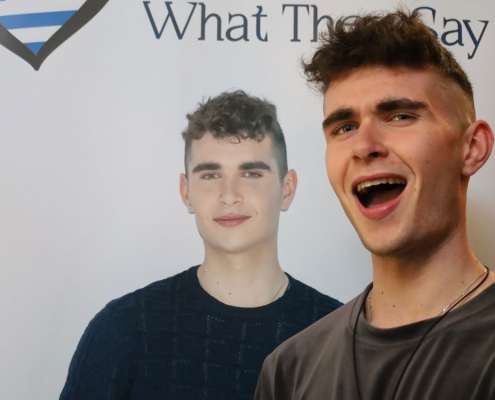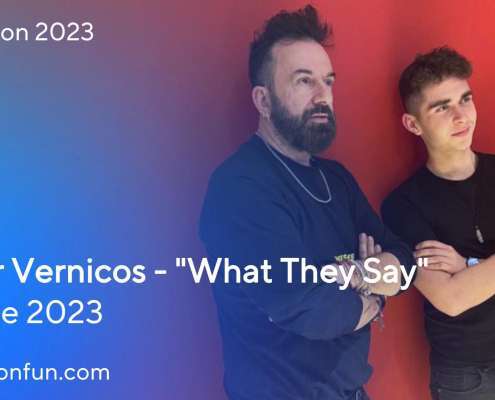
OGAE Poll 2023: The results of Greece and Israel!
/
1 Comment
The next countries to cast their votes for the OGAE annual poll are Greece and Israel.
The…

EXCLUSIVE: Listen to Joanne’s Eurovision 2022 song for the first time!
Joanne's bid for last year's Eurovision on behalf of Greece is…

Greece: Fotis Sergoulopoulos is announced as the Greek spokesperson for Eurovision 2023!
During the breakfast show, Breakfast@Star, the name of this year's…

Eurovision 2023: The televote numbers and voting cost in every country!
Want to know how much it will cost you to vote in Eurovision…

Greece: Victor Vernicos films Eurovision 2023 Postcard!
The next representative to film his postacard is no other than…

Greece: Konstantinos Rigos reveals details about Victor’s performance in Liverpool!
The meet and greet of the Greek delegation and Victor Vernicos…

Greece: Victor Vernicos covers Alexander Rybak and Amanda Tenfjord!
Last Thursday, the Greek national broadcaster ERT hosted a meet-and-greet…

Greece: Watch Victor Vernicos perform “What They Say” live for the first time!
Earlier today, the Greek national broadcaster ERT hosted a meet-and-greet…

Greece: The ERT’s budget for Eurovision 2023!
Today, the budget of Greece's participation in the 67th Eurovision…

Eurovision 2023: Watch tonight our poll results for the two semi-finals!
Today is the first station of our Poll, since after the your…


